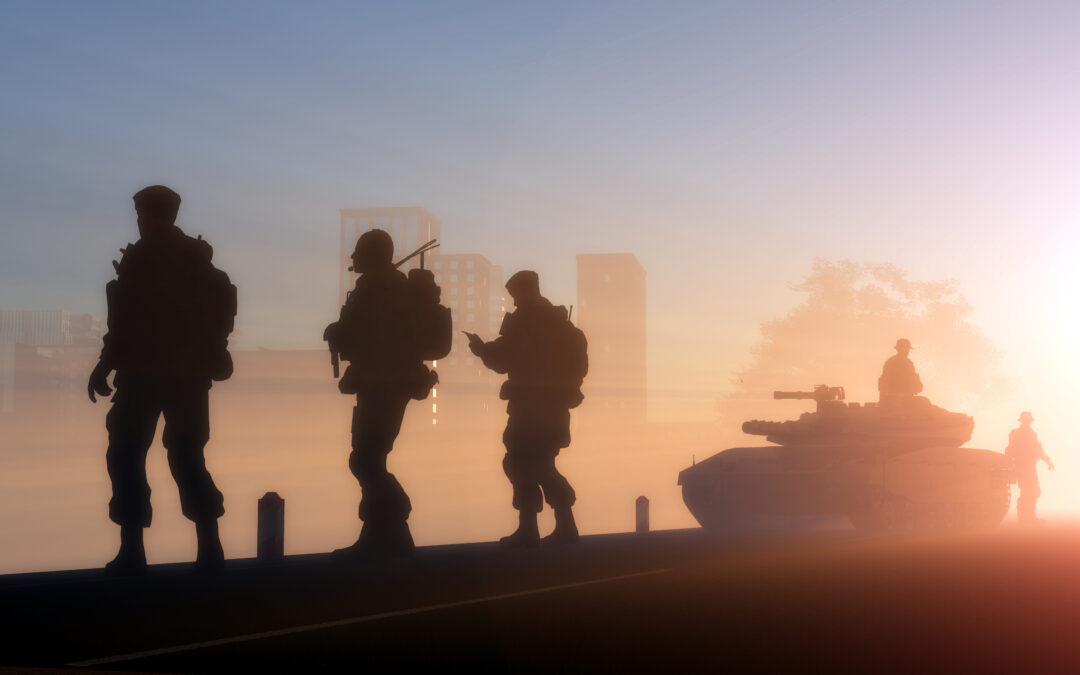I’m often asked about my time in the military. The tangibles: 2 years as an M1A1 tank crewman (loader, driver, and then gunner) – deployed to Kuwait for desert training and border patrol, 3 years as and M1A1 tank officer (platoon leader, company xo) – deployed to Kosovo, then to Kuwait/Iraq during the initial invasion (2003), 3.5 years as a Combat Engineer Officer (company commander, intelligence officer) – deployed to Baghdad to conduct route clearance (looking for IED’s).
Other tangibles include the training: Armor crewman one unit station training, Officer Candidate School, Armor Officer Basic Course, Engineer Officer Advanced Course. I have learned the ability to maneuver troops in combat, control sectors of fire, understand the battlefield, and fire a 120 mm tank, .50 caliber and .240 machine gun.
What does this have to do with legal representation? We probably won’t achieve our end goal by driving a tank to the courtroom to win a case! Sometimes the difficult questions to answer about my military history are the intangibles: the comradery, the stress, the adrenaline, the life, and adapting to normalcy (whatever that is!).
On this Veteran’s Day, I offer four intangibles that I learned through my military experience than can benefit you in your legal matter.
- A Combat Vet recognizes and accepts a challenge
There are many phrases and idioms that you learn in the army. One such phrase is “embrace the suck.” When you are running backwards up a steep hill for the third time in an hour, that simple phrase keeps you going. In the end – when the run is over, there is a sense of accomplishment from completing the challenge.
Many legal issues are challenging. The emotional toll, financial stress, and complex issues leave many clients in world of chaos. You need a lawyer who can understand the challenge, and can help you “embrace the suck.”
One of the many joys of my profession is being able to help clients through their difficult legal issues and see their sense of relief or accomplishment when the case is complete. Not every case has a happy ending – but having a lawyer who understands your difficulties and issues is a start.
- A Combat Vet knows how to plan and prepare for battle (your case)
On my last deployment to Baghdad, I was tasked with planning 30-40 route clearance missions per week for our Battalion. Route clearance is a nice way of saying that our job was to look for, and find the roadside bombs. If I was good at planning, then the patrol would cross a route just AFTER a roadside bomb was placed. Each mission and each route was unique. There may be similar techniques for finding IEDs, but there are a number of variables that go into planning each mission.
Unfortunately, some attorney’s treat every case in the same, cookie-cutter way. At Johnson Litigation, we understand that your case is unique. While there may be similarities in cases, there are innumerable variable that make the case yours. Because of this, we plan accordingly and prepare to battle your case.
- A Combat Vet works well with people
One of the difficulties that you face in the military is having to deal with people that you may not like – or even respect. Ask any enlisted soldier, and they will probably be able to give you an example of an officer that was out of touch with reality. However, there is a chain of command, an honor code and an understanding that you have to work with people.
There have been many times that the ability to work with prosecutors or opposing counsel has allowed me to procure the best possible outcome for my client. For instance, one client, who was charged with 7 felonies, was able to plea to a single misdemeanor with no jail time. When your future is on the line, you want someone who can pursue all the options and possibilities for your case.
- A Combat Vet is not afraid of a fight
Unfortunately, many cases need to go to trial. Whether a civil dispute, a custody battle, or a criminal charge, sometimes a deal is just not in the best interest of the client. Surprisingly, there are many attorneys who fear the courtroom litigation. They look to settle the cases, or hand off the litigation if the case is going to go to trial.
When you have to go to trial, you want to be comfortable knowing that your attorney is not afraid of a fight. We believe in aggressive representation which includes fighting for your rights in the courtroom.
There are many life lessons learned through my experience in the military. I am thankful that God and my Comrades kept me safe. I am thankful that my family and friend helped me adjust to normal post-army life. I am also thankful that the experiences and lessons learned have made me into the lawyer I am today.


